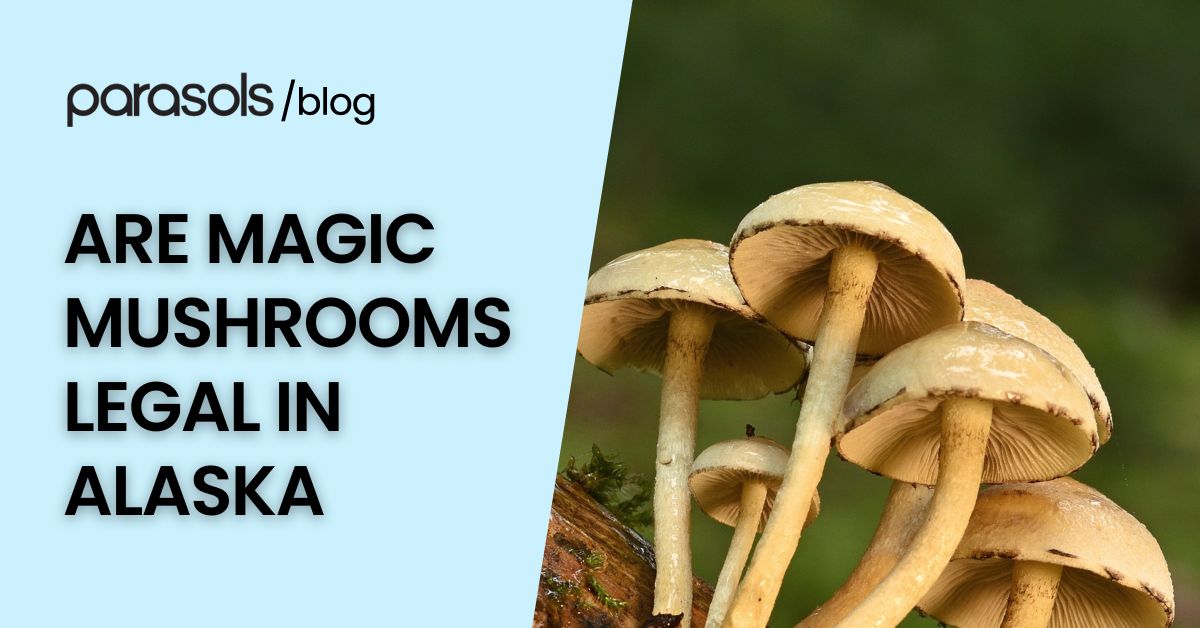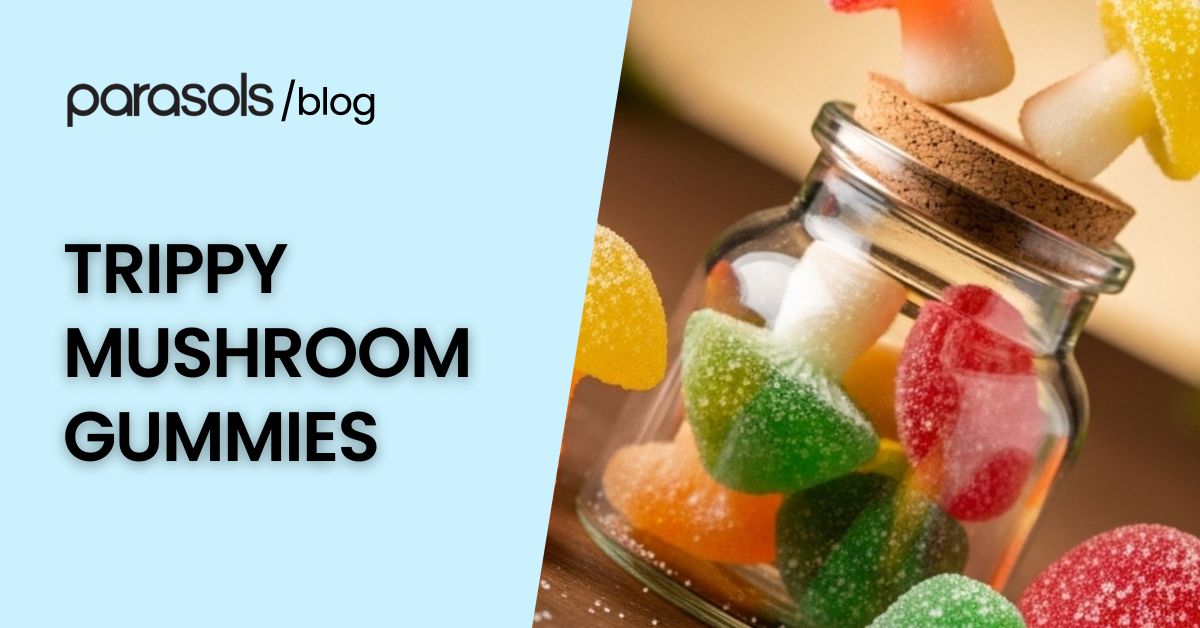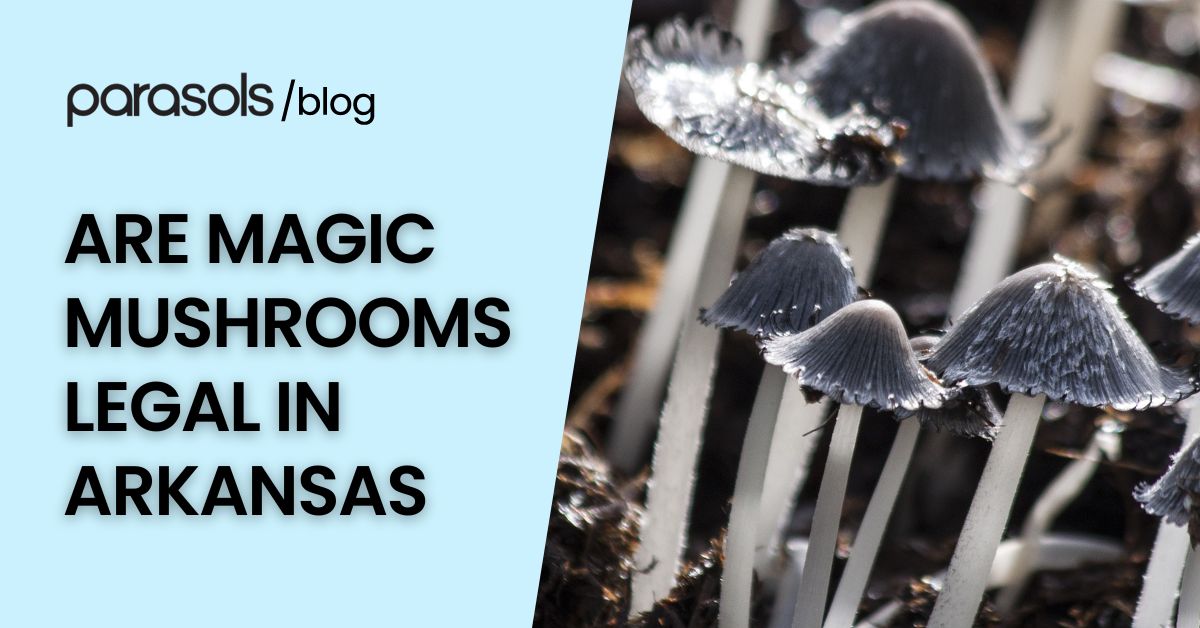Magic mushrooms, also called psilocybin mushrooms, are gaining attention in Alaska for their therapeutic benefits and shifting legal status. This overview highlights essential details about psychedelic medicine, mental health treatment, and current drug laws in the Last Frontier.
Are Magic Mushrooms Legal in Alaska?
In Alaska, magic mushrooms—also called psilocybin mushrooms—are illegal, as psilocybin is a Schedule I controlled substance under state and federal law. Psychedelic medicine, mental health treatment, and related drug laws remain key topics in the Last Frontier.
Specific Laws Addressing Magic Mushrooms in Alaska
In Alaska, magic mushrooms—also called psilocybin mushrooms—are tightly regulated under both state and federal law. Possessing, selling, or growing them comes with serious consequences, as the state takes a firm stance on psychedelic substances like psilocybin, even with growing interest in their therapeutic use.
Alaska Statutes on Controlled Substances
Under Alaska Statute Title 11, Chapter 71, psilocybin is listed as a Schedule IA controlled substance. This is the same as saying it’s considered high-risk, with no accepted medical use and no recognized safety for treatment—at least under current law. Even with advocacy from groups like the Psychedelic Medicine Task Force, it remains illegal to possess, manufacture, or deliver psilocybin in any form.
Schedule Classification and Penalties
Alaska’s drug schedules line up with the federal system, meaning Schedule IA here matches Schedule I at the federal level. For magic mushrooms, this means the toughest restrictions possible. Having even a small amount can get you a misdemeanor charge, while larger amounts or an intent to sell could lead to felony charges, hefty fines, and years in prison.
Federal Law Compliance
On top of state laws, Alaska follows the federal Controlled Substances Act, which also lists psilocybin as a Schedule I drug. This double layer of regulation means you could face both state and federal charges for the same psilocybin-related offense.
Lack of Medical Exemptions
Unlike marijuana, which is allowed for medical use in Alaska, psilocybin has no medical or therapeutic exception. That means even people seeking psilocybin-assisted therapy for mental health conditions like post-traumatic stress disorder, anxiety, or treatment-resistant depression have no legal way to use it here.
No Decriminalization Statutes
So far, Alaska hasn’t passed any laws to decriminalize magic mushrooms, psilocybin mushroom spores, or other psychedelics. In other places, possession has been made the lowest law enforcement priority—but here, penalties remain in full effect, and the legal consequences can be severe.
Consequences of Magic Mushroom Possession in Alaska

In Alaska, having magic mushrooms—also called psilocybin mushrooms—is illegal and can lead to serious charges. Psilocybin, the psychoactive ingredient in these mushrooms, is a Schedule IA controlled substance under state law, meaning it’s seen as high-risk with no accepted medical use.
Possession Penalties
The consequences depend on how much you have:
- Less than 4 ounces: Class A misdemeanor, punishable by up to one year in jail and/or a fine of up to $10,000.
- 4 ounces or more: Class C felony, with up to five years in prison and/or a fine of up to $50,000.
Distribution and Cultivation
Selling or growing psilocybin mushrooms carries harsher penalties:
- Distribution: Class B felony, up to 10 years in prison and/or a fine of up to $100,000.
- Cultivation: Treated as manufacturing a controlled substance, with the same penalties as distribution.
Legal Status of Spores
Psilocybin mushroom spores are legal to own in Alaska since they don’t contain psilocybin. But once they’re grown into mushrooms with the psychoactive compound, it becomes illegal—and you could face the same penalties as for possession or cultivation.
Why Are Shrooms Illegal in Alaska?
Shrooms—also known as psilocybin mushrooms—are illegal in Alaska because they’re considered a high-risk controlled substance. Both state and federal authorities point to several reasons for keeping their prohibition in place:
- Schedule I Classification: Psilocybin is listed as a Schedule I controlled substance, meaning it’s viewed as having no accepted medical use and a high potential for abuse.
- Federal Drug Policy Alignment: Alaska’s drug laws mirror federal standards, where psilocybin remains banned under the Controlled Substances Act.
- Public Health Concerns: Officials cite risks such as psychosis, impaired judgment, and unpredictable behavior when used without supervision.
- Lack of FDA Approval: While research on therapeutic benefits is growing, psilocybin hasn’t been approved by the FDA for medical treatment.
- Law Enforcement Challenges: The psychoactive effects of shrooms make regulation and enforcement difficult, especially in recreational contexts.
- Historical Precedents: Like other psychedelic substances, shrooms were outlawed during the war on drugs era, and those policies have largely stayed in place.
What are Legal Alternatives to Magic Mushrooms in AK?

While psilocybin mushrooms are still illegal in Alaska, there are several legal or more accessible options that people use for mental health support, relaxation, or personal wellness. Some offer therapeutic benefits, while others can help achieve altered states of consciousness in safe and lawful ways.
- Ketamine-Assisted Therapy: Available through licensed clinics, ketamine is FDA-approved as an anesthetic but is also used off-label to treat depression, anxiety, and PTSD. It’s one of the few psychedelic-like treatments legally accessible in Alaska.
- Cannabis (Marijuana): Both recreational and medical cannabis are legal for adults 21 and older. Many people use it for mood enhancement, anxiety relief, and therapeutic purposes, with specific strains marketed for wellness.
- Psilocybin Mushroom Spores: While psilocybin itself is illegal, spores that don’t contain the psychoactive compound are legal to possess. Cultivating them into mushrooms with psilocybin, however, is still prohibited.
- CBD Products: Derived from hemp, CBD is non-psychoactive, legal, and widely available. It’s often used for managing anxiety, inflammation, and sleep issues.
- Meditation and Breathwork: These non-substance practices are becoming increasingly popular for improving mental health, reducing stress, and achieving altered states without breaking the law.
- Nutraceuticals and Adaptogens: Legal plant-based supplements like lion’s mane, ashwagandha, and reishi mushrooms are promoted for cognitive support, stress reduction, and mood balance.
Final Thoughts
Right now, psilocybin mushrooms are still illegal in Alaska, but interest in their possible therapeutic benefits is growing. The laws remain strict, yet there are several legal options for those looking for mental health support.
As research moves forward and conversations around psychedelics develop, it’s worth keeping an eye on how the legal landscape might change in the Last Frontier.
Consider reviewing safe, legal options and consulting qualified professionals to better understand what solutions might be right for your needs.
Frequently Asked Questions
Can I use psilocybin mushrooms for religious or spiritual purposes in Alaska?
No. Alaska law does not currently provide exemptions for religious or spiritual use of psilocybin mushrooms. Possession and use remain illegal regardless of the intended context.
Is microdosing psilocybin allowed in Alaska?
No. Even small amounts of psilocybin are considered illegal under Alaska law. Microdosing is still classified as possession of a controlled substance.
Are there any cities in Alaska that have decriminalized magic mushrooms?
No cities in Alaska have officially decriminalized psilocybin mushrooms. Unlike some jurisdictions in other states, local governments in Alaska have not adopted such measures.
Can I be prosecuted for having dried mushrooms versus fresh ones?
Yes. The legal status does not change based on the form. Whether fresh or dried, psilocybin-containing mushrooms are treated the same under Alaska drug laws.
Is scientific research on psilocybin allowed in Alaska?
Scientific research may be permitted under strict federal and institutional protocols, but private individuals cannot legally conduct studies involving psilocybin without special authorization.
Are there any advocacy groups pushing for psilocybin reform in Alaska?
Yes. Although still limited in reach, some local and national advocacy groups are working to influence Alaska's psychedelic drug laws and promote psilocybin’s therapeutic use.
Can psilocybin be mailed or shipped legally into Alaska?
No. Mailing or transporting psilocybin mushrooms into Alaska is illegal under both federal and state laws, and can lead to severe legal consequences.



Leave a comment
This site is protected by hCaptcha and the hCaptcha Privacy Policy and Terms of Service apply.